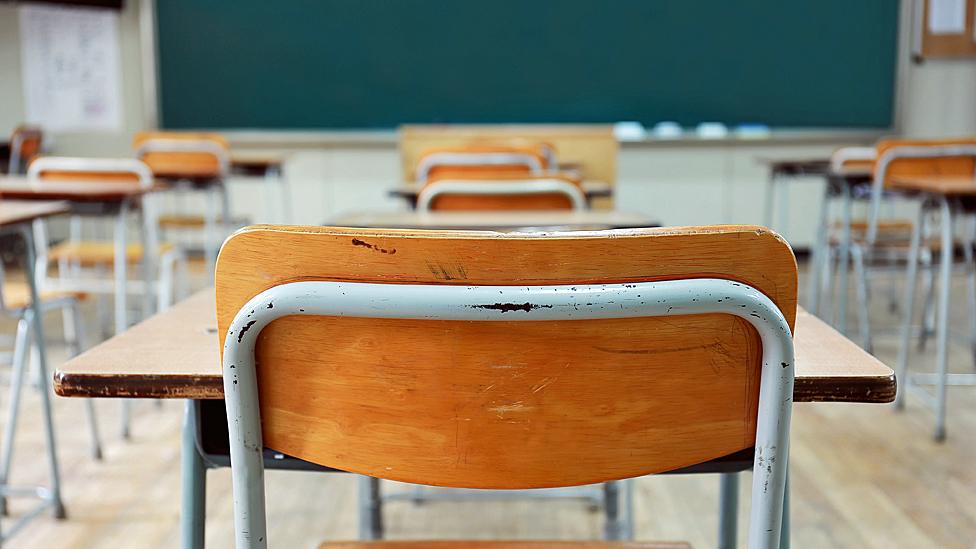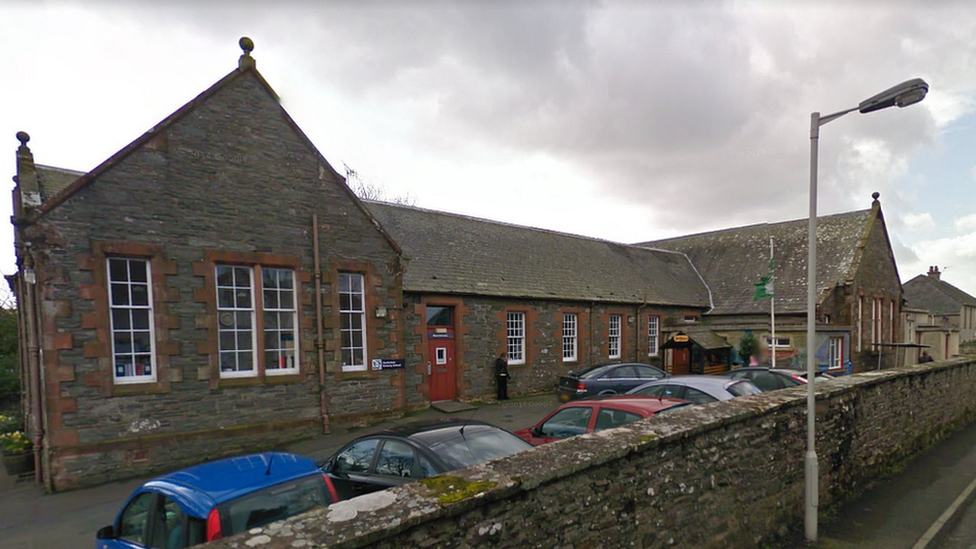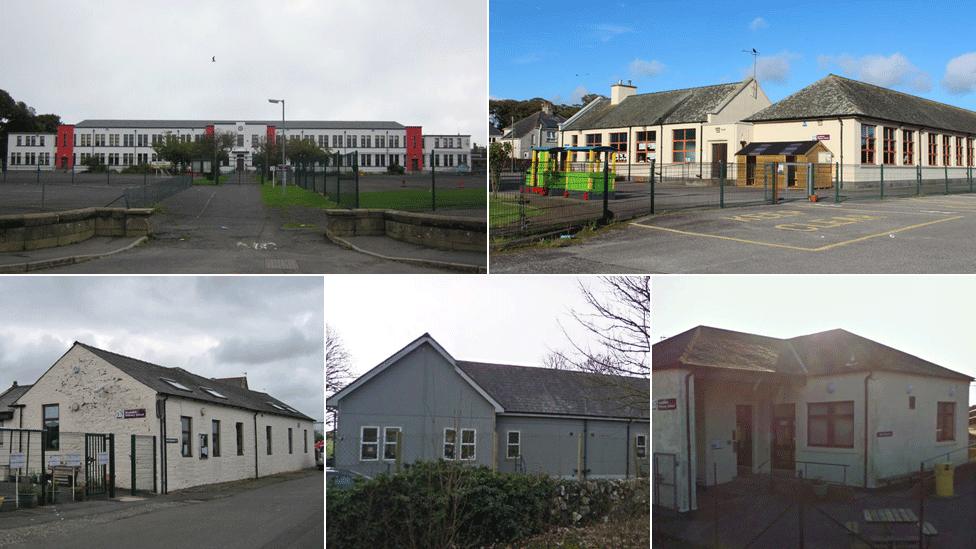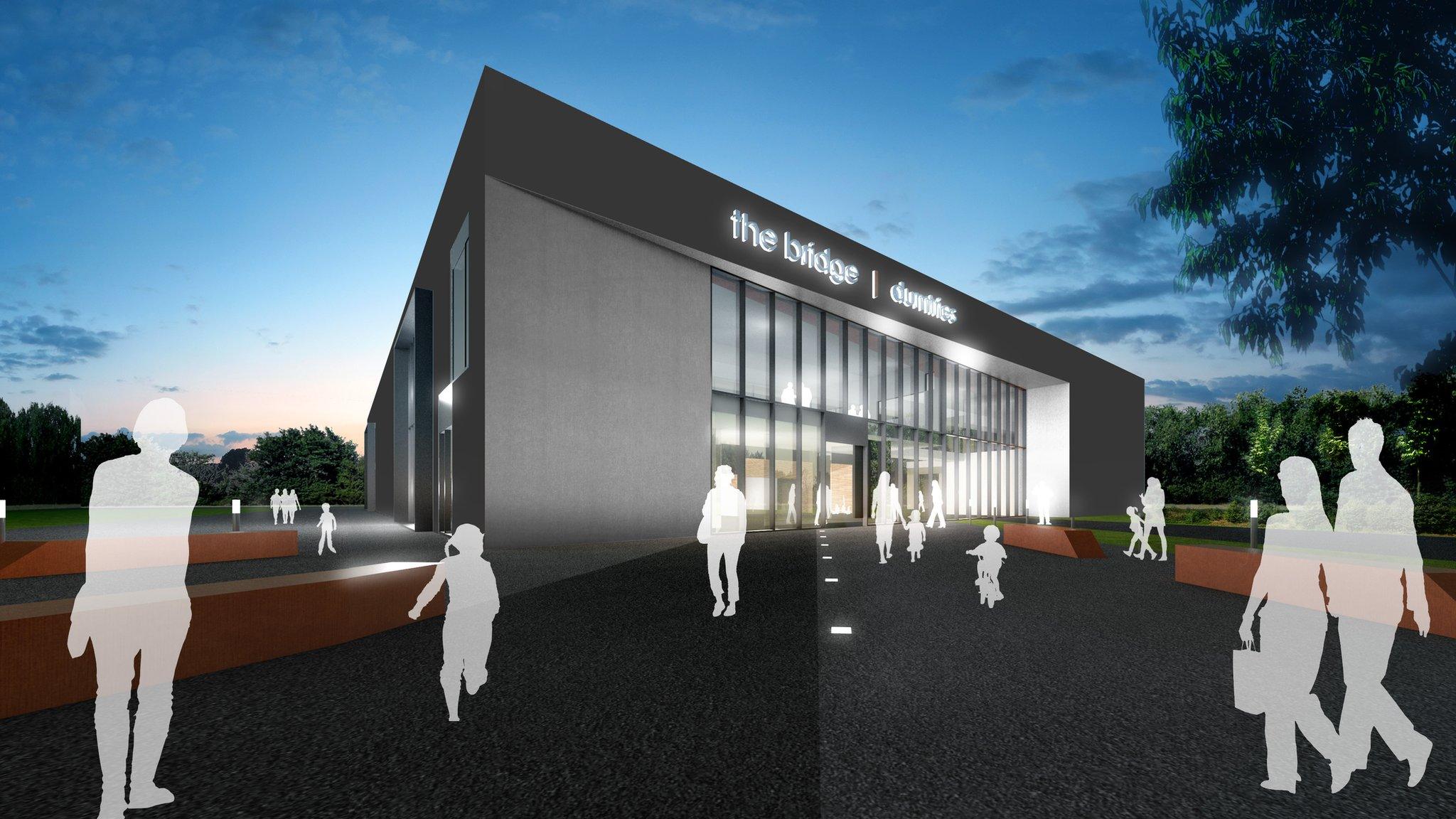Quarter of Dumfries and Galloway schools at below 50% capacity
- Published
- comments

Many schools in the region have classrooms they no longer need
About a quarter of schools in south west Scotland are operating at less than 50% capacity.
A Dumfries and Galloway Council report said rolls were falling and lots of buildings were no longer "fully suitable" or had excess classrooms.
Figures from 2019 show 26 out of 98 primaries and four out of 16 secondaries were less than half full.
Council policy is to carry out a review of any schools with 50% utilisation or less for a projected six-year period.
The report to the council's education and learning committee, external follows a "transformation event" held last year with parents, head teachers and unions.
It outlined a "need and a willingness to be brave and accept that change is needed" with the schools estate.

Costs per pupil to the local authority are above the national average at both primary and secondary level.
The council said it recognised that planning future provision would "take time" and it was difficult to meet everyone's expectations.
It also outlined a number of key issues being faced, including:
how to ensure schools are the right size for their catchment area
making sure schools operate cost effectively
ensuring management costs in primaries and secondaries were "proportionate"
Among the other challenges being encountered is the fact that nearly 25% of primary pupils attend a school outside their catchment area.

Capacity figures for the schools will be shared on the council's website to help parents of children going into P1 or S1 to decide where to enrol them.
The local authority has pledged to "work together" with all concerned groups to plan the future of its schools provision.


Moves to shut three schools in the region were dropped in 2017
Analysis: By Giancarlo Rinaldi, BBC news website south of Scotland reporter
The school roll figures come as no surprise in a region with one of the most elderly populations in the country.
Pupil numbers have tumbled but any plans to shut sites tend to face local opposition.
In 2017, a bid to close three rural primaries was dropped but the issue has not gone away.
The council has invested heavily in new schools and its estate still runs to more than 100 properties for about 18,500 children.
Keeping all of the schools open is unlikely to be an option but the journey towards "better and fewer assets" remains a delicate one.

- Published30 January 2017

- Published10 November 2016
